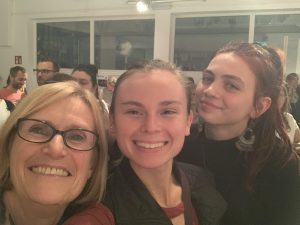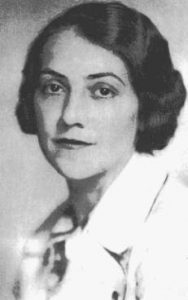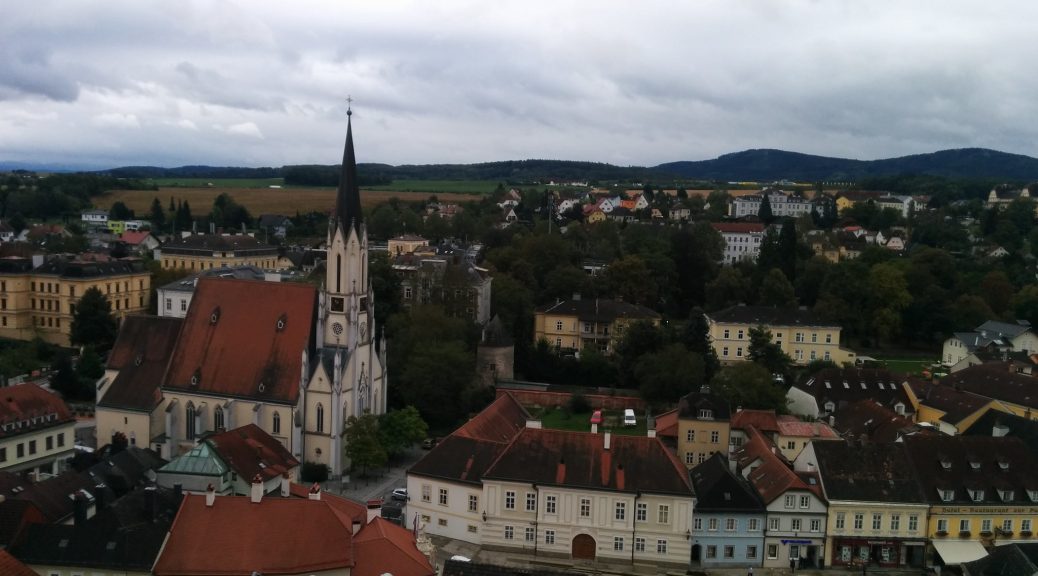11 October 2019

I had no idea how living with a complete stranger for two months was going to go. I knew she was a retired teacher, had a daughter, and didn’t have any pets. That was it. The night we arrived in Vienna we all went to a restaurant for dinner and then waited for our hosts to pick us up and take us home. I was so nervous. Now, almost two months later, I look back at this memory and smile. I never could have dreamed of a better host mom to spend my time here in Vienna with. She is very adventurous and so kind. She goes out of her way to provide us, always giving 110%. It is inspiring to me how welcoming she has been and taken us in like we were her own family. When I return home, I will feel so grateful knowing I have this special connection across the world forever. Like she said at the breakfast table this morning, “You and I, we are from different places and yet we have no problems. We know that actually we are the same (just human).”
-Anna Smith
12 October 2019
Friday was a lot. We did a tour of District One’s Jewish History. We learned about a man who survived a concentration camp and dedicated the rest of his life to aiding the government in hunting down Nazis, beginning with those who had been his personal torturers. We learned about a woman, Irene Harand, who was a human rights activist and fought against antisemitism. She wrote a  book entitled “Sein Kampf” which translates to “His Fight” where she tears apart Hitler’s cruel and false ideals. An article I read about her labeled her as “a thorn in the side of the Austrian Nazi party.” Ms. Harand, after spending five years in Europe directly fighting against Hitler, immigrated to the United States and was able to rescue 100 Jews from Europe attempting to flee persecution .
book entitled “Sein Kampf” which translates to “His Fight” where she tears apart Hitler’s cruel and false ideals. An article I read about her labeled her as “a thorn in the side of the Austrian Nazi party.” Ms. Harand, after spending five years in Europe directly fighting against Hitler, immigrated to the United States and was able to rescue 100 Jews from Europe attempting to flee persecution .
I am trying my hardest not to push politics in this post, but I know it will come out. Despite that, I hope you can see that it is with love that I write this. Something I have been thinking about since we took this tour is if I could do what this woman did. This Christian woman, who stood up against Hitler and the Nazi regime; who put herself and most likely her own loved ones at risk by not staying quiet, but firmly saying no; who brought people across oceans and borders to protect them. Could I, do I, exhibit this kind of radical love?
In high school, I did a project on the Rohingya genocide in Burma/Myanmar. Much of today’s talk about genocide is in regards to the past, but there are genocides that have occurred within the last ten years, there are genocides that are happening right now. All around the world there are people being persecuted and murdered for their skin color, for their beliefs, for the way they choose to live their lives, for simply existing, and we’re still talking about genocide like it isn’t right in front of us. I’M still talking about genocide like it isn’t happening right in front of ME. We can give different reasons for why we aren’t talking about it: that it’s a myth, that it isn’t our responsibility, that they did something wrong and so they deserve it, that it doesn’t affect you and me so it doesn’t matter. But those are excuses.
I watched a documentary last year about Michael J. Sharp, an EMU alumnus working as a Peacemaker in Congo with the UN. In 2017 he and his colleague were murdered during a mission in Congo. One of the lines his father spoke in the documentary has stuck with me ever since. Michael Sharp never cared about the dangers he had to face because “maybe if a white person died the rest of the world would finally see.” The reality of current genocides is that no one is killing white people, but if they were, the rest of the world would see. The rest of the world would hear MY cries. The rest of the world would step in. Why are we, after all these years, still not seeing them?
-Haley Williams

